The charge of impaired driving is one of the most common criminal offenses in Quebec. It is because of this sad statistic that federal and provincial governments are increasingly cracking down on this behavior.
In other words, driving while impaired by alcohol has serious consequences. However, the extent of these consequences will depend on several factors, including your reaction at the time of the charges.

However, don't think that you're left to your own devices if you're arrested or charged with drunk driving. In fact, due to the frequency of drunk driving, several lawyers have specialized in this field.
If you're accused of impaired driving, the first step is to contact a criminal law lawyer to receive the proper representation of your interests.
JuriGo explains in detail EVERYTHING you need to know about the offense of drunk driving in Quebec to avoid the serious consequences that result.
Is alcohol the only illegal substance?
No! Although alcohol is predominant in impaired driving charges, the Criminal Code explicitly states that it is not the only substance considered illegal while driving.
The charge of impaired driving applies to all drugs or substances with similar effects. This definition even includes medications that may have been prescribed by your doctor.
Therefore, if you need to take medication, it is crucial to ask your doctor if the effects may have an influence on your ability to drive a vehicle.
Good to know! Some medications taken alone do not affect your ability to drive. However, when mixed with alcohol, it is possible for medications to have a major impact on your faculties.
Regarding cannabis while driving , the legislation allows for recreational consumption, but under no circumstances does this mean that you can drive after consuming a certain amount. There is a limit to the amount of cannabis consumption allowed before getting behind the wheel.
Additionally, if a police officer suspects that you have consumed cannabis during an interception, they have the right to request a blood sample to verify the presence of drugs in the sample.
Therefore, as soon as a substance impairs your faculties, it can lead to criminal charges.
What laws apply in the case of drunk driving in Quebec?
If you are intercepted for driving under the influence in Quebec, you can normally expect to find all the necessary information in two pieces of legislation: the Criminal Code and the Highway Safety Code.
First, regarding the Criminal Code, this federal law is responsible for the major sanctions associated with this offense if you are found guilty by a judge. Depending on your guilt, you may have to pay a fine, serve a prison sentence, and inherit a criminal record.
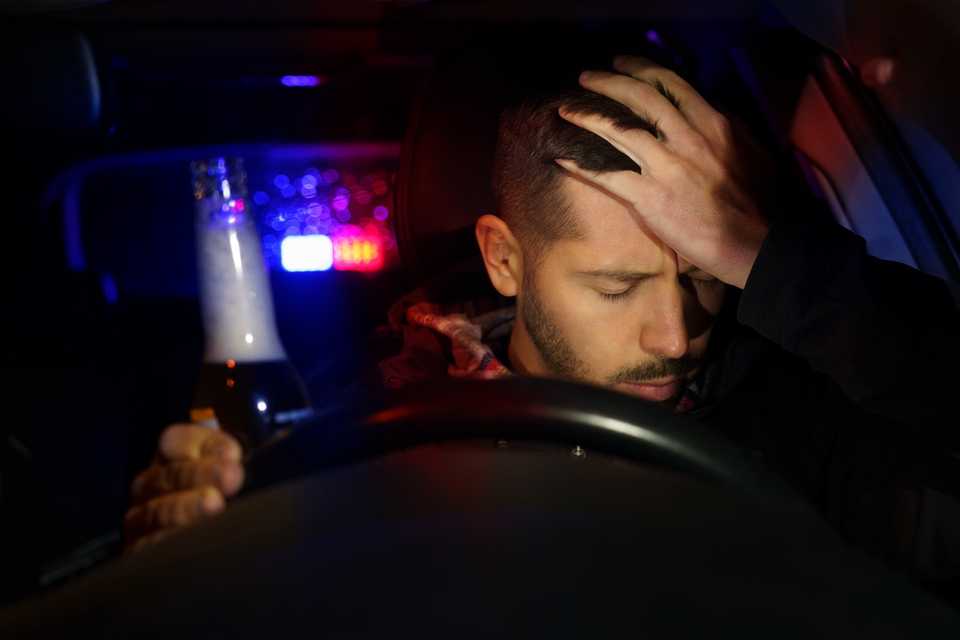
Also, the sentences will vary depending on the severity of the crime and the number of repeat offenses. For example, if this is your second arrest, you will have to serve a 30-day prison sentence. However, if this is your third offense, the sentence will be 120 days.
Furthermore, you will face more serious charges if your impaired driving was the cause of a more serious crime such as involuntary manslaughter. In this case, imprisonment will reach a period of 14 years.
As for the Highway Safety Code, the sanctions found there have more of an impact on your daily life. For example, you could have your driver's license and even your vehicle suspended for a certain period of time.
However, this law does not justify imprisonment or a criminal record. Indeed, since it is a provincial law, it must be limited to administrative sanctions and can therefore impose fines.
Impaired driving vs. Driving under the influence vs. Care and control charge
After consuming alcohol, impaired driving is not the only criminal offense you could face. In fact, it is important to understand the three crimes in order to avoid the worst.
Impaired driving
Contrary to what many may think, the limits imposed by the law (the famous 0.08% alcohol) do not make a lower blood alcohol level exempt from criminal charges. In fact, with a blood alcohol level of less than 80 mg of alcohol per 100 ml of blood, it is still possible to be charged with impaired driving.
The purpose of this offense is to punish a person who has taken the wheel, regardless of their alcohol consumption, and who did not have the faculties to drive a vehicle.
In this case, there is no particular degree to be respected and, therefore, the government only needs to prove a sufficient degree of impairment in order to determine that the driver's judgment was affected by a substance.
Drunk driving
This is the most well-known offense, which requires having a blood alcohol level above the limit of 0.08% alcohol. In this case, the offense is quite systematic: the police officer will proceed with a breathalyzer test and arrest you if you exceed the limit.
As for the consequences of drunk driving , several elements are considered, including the number of repeat offenses and the severity of the criminal offense.
Indeed, a person with a blood alcohol level around 0.16 is at risk of facing more severe consequences than another person with a level of 0.08. This will be especially true for the suspension of your driver's license.
Guardianship or control of the vehicle
Finally, the last lesser-known criminal offense is the prohibition of having guardianship or control of a vehicle if you are intoxicated or impaired.
In this case, it is possible for a police officer to intercept a person who is behind the wheel and whom he suspects of being impaired, even if the person has not driven the vehicle.
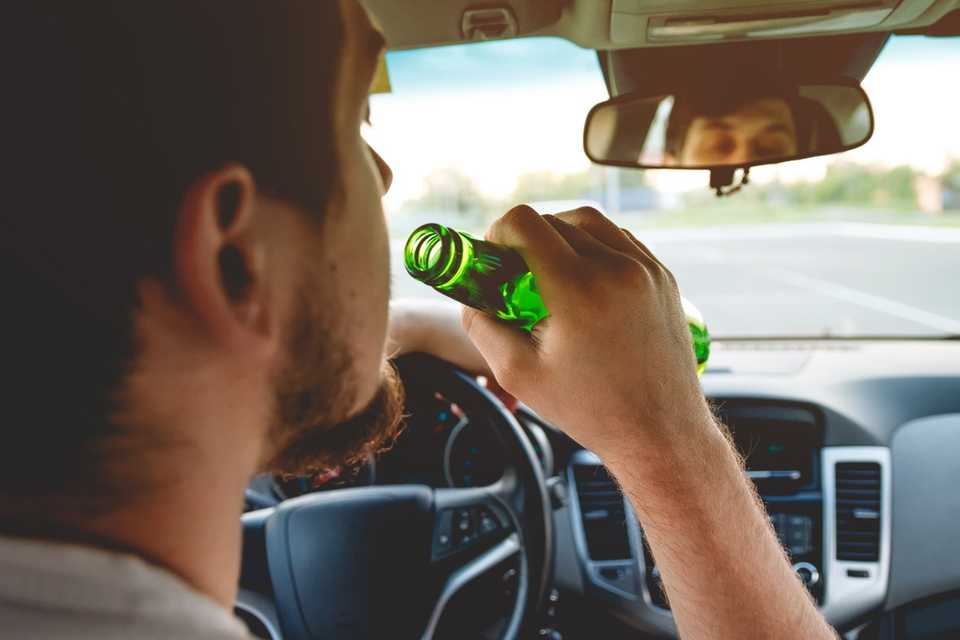
It will also be possible to arrest a person who is sleeping on the back seat in order to "sober up". In short, if you have the opportunity to drive the vehicle, you could face charges as serious as driving while impaired.
Driving under the influence – EVERYTHING you need to know!
When you are accused of driving under the influence, the government prosecutor will have the mission to prove three elements:
- You were behind the wheel of any means of transportation,
- Your ability to drive was considered impaired, and
- Your ability was impaired by the presence of a drug or alcohol.
| Attention! As mentioned, the accusation is for operating a means of transportation. Therefore, whether it is a car, an ATV, a boat or an aircraft, you face the same criminal charges. However, non-electric bicycles do not fall under the definition of a motor vehicle and therefore, you cannot be charged with impaired driving. |
|---|
However, as mentioned earlier, it is not a question of being intoxicated beyond the legal limit, but only of impaired faculties. Therefore, if the prosecution demonstrates beyond a reasonable doubt that the accused person had a level of intoxication, regardless of whether it is low or high.
Next, the prosecution must demonstrate that the impairment of your faculties is caused by the voluntary consumption of alcohol or any drug. Indeed, simply having impaired faculties caused by fatigue, age or illness does not justify guilt for impaired driving under the law.
Normally, these "impaired faculties" will be observed by the police who have arrested you after conducting a certain evaluation of your faculties, including the taking of a breath sample. In this case, several elements will be considered, including:
- The presence of an alcohol odor,
- The driver's negligence,
- Difficulty in expressing oneself,
- Lack of coordination,
- The driver's admission of guilt, and
- Lack of balance.
| Important! Since the legislative changes of 2018, police officers can request a breath sample without reasonable grounds to suspect the presence of alcohol in the driver's body. This is allowed provided that the officer has immediate access to the detection device. |
|---|
The Means of Defense for Drunk Driving
If you are accused of drunk driving, the first step is to contact a criminal defense lawyer specialized in this area as soon as possible.
Thanks to JuriGo, you can find one for free by filling out the online form!
There are several means of defense that the lawyer can argue to demonstrate that you are not guilty of the accusation in question. Keep in mind that the prosecution must prove your guilt beyond a reasonable doubt, so you only need to sow doubt to be exonerated.
First, you could argue that the symptoms observed by the police do not establish that you were driving a vehicle while impaired or that they are not due to alcohol consumption.
This will be the case, for example, if the person suffers from a speech disorder or a physical disability preventing them from moving properly.
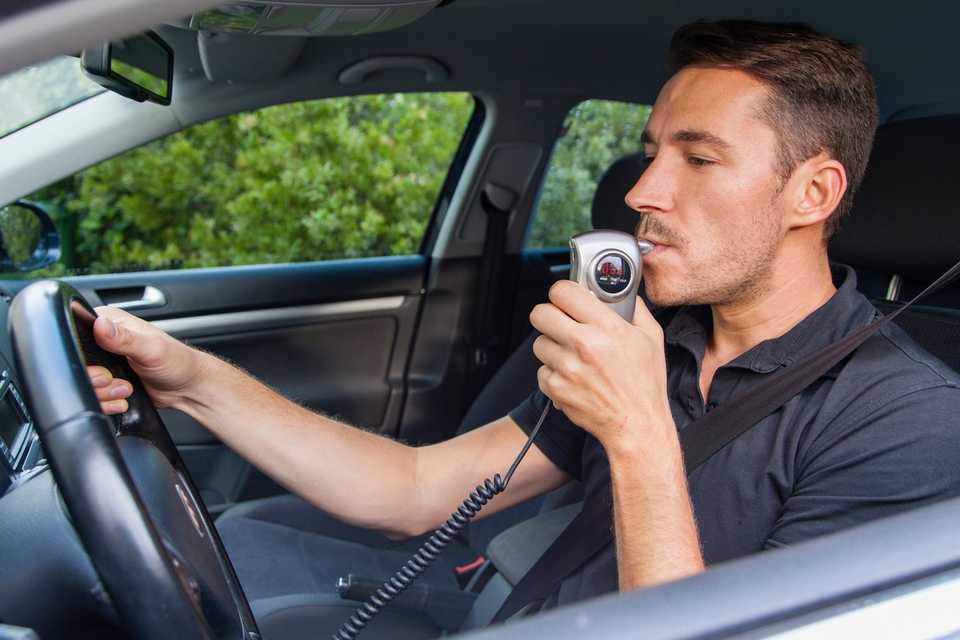
If this does not work, a criminal defense lawyer can argue that the actions of the police were contrary to your constitutional rights and therefore, the evidence is not admissible. Several situations can cause a violation of your constitutional rights during an interception by law enforcement officers:
Illegal arrest: When police officers decide to arrest you without having reasonable grounds to believe that you were driving a vehicle while impaired.
Illegal Interception: When police officers stop you under the pretext of an investigation that has no connection to road safety (for example, a sobriety checkpoint) or if they do not have reasonable grounds to suspect that you have committed an offense.
The right to a lawyer of your choice: When you are arrested, police officers have an obligation to allow you to communicate with the lawyer of your choice. If they do not give you a reasonable opportunity to communicate with a professional, they violate your right to a lawyer.
Order to illegally submit to a coordination test: When police officers do not have reasonable grounds to suspect that you are impaired, they cannot force you to submit to a coordination test. However, they can take a breath sample if they have the machine with them.
Finally, the court may make the Jordan ruling and therefore order a stay of proceedings if the delay between charges and final judgment exceeds 18 months. However, if the accused causes delays, the ruling does not apply.
Sanctions for impaired driving
If you are found guilty of impaired driving in Quebec, you will face heavy consequences that can have a significant impact on your daily life.
The choice of sanctions will take into account several factors, including aggravating circumstances and the number of repeat offenses. In fact, if your driving injures or kills someone, you risk much more significant consequences.
Here's what to expect, at the criminal level, if you're guilty of impaired driving:
Driving prohibition: It will indeed be possible to suspend your driving license for a variable period depending on the circumstances. Normally, for a first offense, the suspension will be one year. However, if it is a repeat offense, you could lose your license for 5 years.
In addition, the suspension will take into account your blood alcohol level. If, during your first offense, you have a level above 0.16%, the suspension will last 3 years.
Seizure of your vehicle: It is possible for the police who arrest you to automatically seize your vehicle for a period of 30 days without having to request authorization from the court beforehand. Also, the police can suspend your license for 3 months as soon as they arrest you for impaired driving.
Criminal Record: If you are found guilty of the offense in question, you will have a criminal record. This comes with its share of consequences, including the prohibition of traveling in several situations.
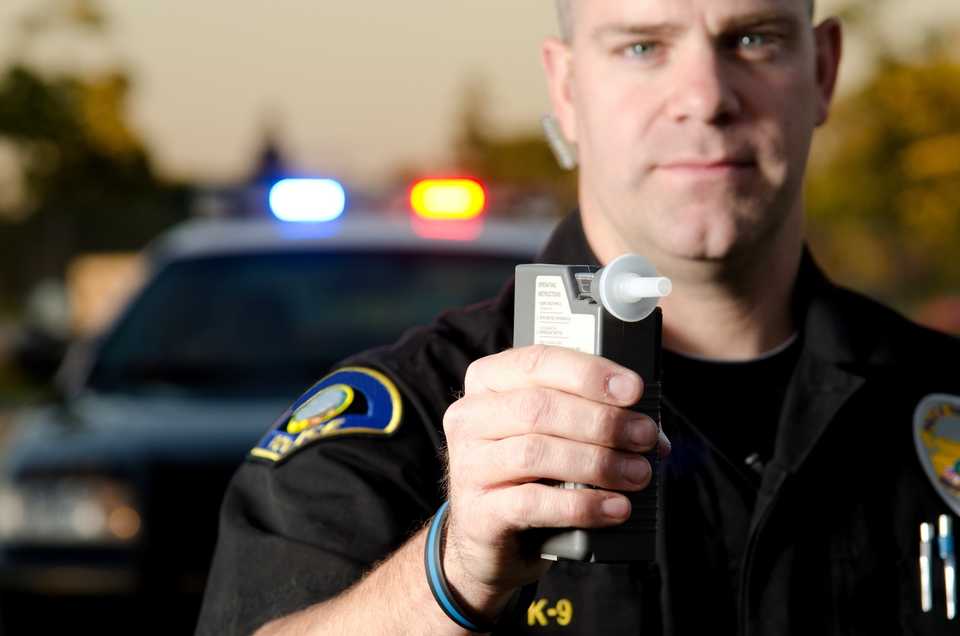
Next, you will have to pay a fine whose minimum value is $1,000. However, this amount can be much higher depending on the circumstances surrounding your criminal offense.
Imprisonment: Finally, the Criminal Code requires a minimum term of imprisonment if you are not on your first arrest for impaired driving:
- Second offense: minimum of 30 days
- Third offense: minimum of 120 days.
The maximum sentence is 10 years. However, if there are aggravating circumstances, you could face more significant consequences. For example, if you injure someone, your imprisonment sentence can reach 14 years.
However, even if you are not found guilty by the competent court, it is still possible that the Automobile Insurance Society may impose consequences. In this case, you could lose your license for a period of 90 days from your arrest.
Also, your vehicle can be seized directly by the police if you are caught with a blood alcohol level above 0.16%. Additionally, you could receive a one-year driving ban. In this case, you will have to follow the rehabilitation program offered by the S.A.A.Q.
Driving under the influence of alcohol (blood alcohol level of 0.08)
In the case of driving under the influence of alcohol, the prosecution must prove two elements:
- You were behind the wheel of a motor vehicle, and
- Your blood alcohol level exceeded the legal limit within two hours of driving.
It can be complicated for the prosecution to prove the second element. Therefore, the Criminal Code sets out two presumptions in the case of impaired driving:
- The result of the breathalyzer test is presumed accurate, and
- At the time of the sample, the lowest blood alcohol level is taken as the accused's blood alcohol level.
Therefore, you could be acquitted of the charge if the prosecution is not able to prove beyond a reasonable doubt the identity of the driver as well as the operation of a motor vehicle.
Did you know? If the first alcohol sample was not taken within a reasonable time, you can ask the judge to declare an abusive search.
What are the defenses against driving under the influence of alcohol?
As with the charge of impaired driving, it is necessary for the prosecution to prove your guilt beyond a reasonable doubt. So, as the accused, you only need to establish doubt.
It is false to believe that you are without recourse when you are charged with drunk driving. Indeed, there are several defenses. Here are the three most common defenses:
-
Arbitrary interception of your vehicle by police officers,
-
Unjustified arrest, and
-
Failure to respect the necessary time limits to take your breath sample.
If you are looking for a lawyer, turn to JuriGo and in just a few clicks, you will find the perfect lawyer for you!
When you want to create doubt, you cannot simply present expert evidence on your blood alcohol level. Therefore, you cannot argue that you only had one drink. This is because the result of the breathalyzer test is presumed to be accurate.
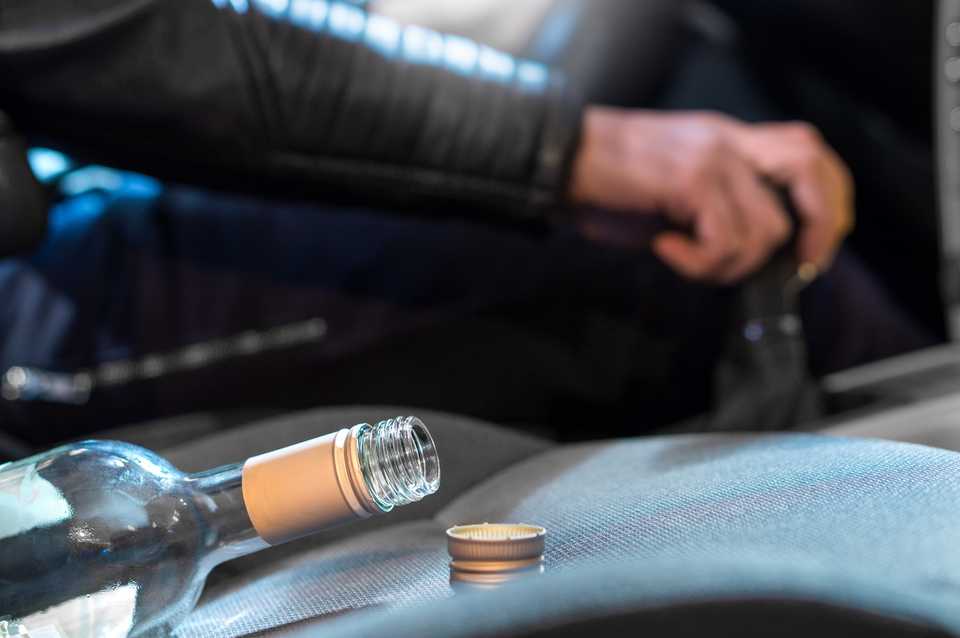
However, it is still possible to raise doubt regarding the functioning of the machine or regarding its use. In order to demonstrate this, you will have to request disclosure of the proof regarding the complete process of taking the sample.
Regarding illegal interception by the police, they have an obligation to have a reason when they decide to intercept a vehicle. For example, they will have the right to intercept a vehicle for a few reasons:
- To check a driver's license,
- To check the driver's sobriety,
- To perform a road safety check (for example, a checkpoint), and
- To check a mechanical defect of the motor vehicle.
However, if the police officer has no reasonable grounds, it will be possible for your lawyer to request the inadmissibility of the alcohol test.
In addition, as with the charge of driving under the influence, it is possible for your lawyer to convince the judge that the police did not respect your constitutional rights. Each element presented previously applies in this case as well. This will also be the case for a procedure that exceeds a period of 18 months.
In short, no matter what defense you choose, your goal is to prove the absence of proof beyond a reasonable doubt. You can do this by attacking police procedures, interception or alcohol testing.
Keeping and controlling a motor vehicle
Many people have had the idea of sleeping in their vehicle after drinking a certain amount of alcohol in order to avoid driving. However, this is also considered a criminal offense under the law.
The law imposes a presumption that a person sitting in the driver's seat intended to drive the vehicle in question. However, being anywhere in the vehicle can lead to this accusation. If you are drunk, you cannot be responsible for the supervision, care, or responsibility of the car.
To be found guilty of this offense, it is necessary for the prosecution to demonstrate the existence of a realistic risk that you could use the vehicle. Therefore, to be guilty of care or control of a vehicle under the influence of alcohol, the prosecution will have to prove:
- Intentional driving,
- Operating a means of transportation,
- You were impaired, regardless of the degree,
- Your faculties are impaired due to the consumption of alcohol or drugs, and
- There are circumstances with a realistic risk of danger to you.
As for the realistic risk of danger to others, it will be fulfilled as soon as there is a realistic risk that you will set the vehicle in motion. There are three ways to prove a risk of vehicle movement.
First, if the accused did not intend to drive, but decides to change their mind after becoming intoxicated. Second, if a person inadvertently starts the vehicle while drunk and sitting in the driver's seat. Finally, if, while intoxicated, you have parked the vehicle in a way that poses a risk to others.
This will be the case if you forgot to put the vehicle in full stop and it starts to roll down a slope on its own.
Defenses for drunk driving charges
It will be possible for you to present defenses according to which you will not be responsible for the criminal offense for which you are accused. Indeed, you will be able to demonstrate that you had no intention of driving the vehicle and that it is in a safe place.

Also, you could prove that you had already established a plan to return home. This would be particularly the case if you had notified a taxi or Operation Red Nose during the holiday season.
Furthermore, if you are stopped in the vehicle, you will be able to prove that you were simply retrieving an item that was inside the car.
Regardless of your defense, there are several elements that will be considered by the court, including:
- If the vehicle's engine was running,
- If you had the keys to the vehicle on you,
- Where you were in the vehicle,
- If the vehicle was moving or not, and
- Your intentions before the arrival of law enforcement.
Finally, all elements associated with protecting your constitutional rights mentioned in the impaired driving section apply in the case of motor vehicle custody.
Can you refuse to blow into a breathalyzer?
No, you cannot refuse to blow into a breathalyzer or blow inadequately into the device to prevent the police from collecting results. In this case, you may face charges of refusing to comply with the police.
The purpose of the test is to allow police officers to have reasonable grounds to proceed with an arrest if you fail the test. In this case, the prosecution will have to prove beyond a reasonable doubt the following elements:
- You were ordered to blow into the device,
- You were aware of having received the order in question,
- The police had reasonable grounds to suspect that you had consumed alcohol,
- You drove or had custody of a motor vehicle,
- The police tried to administer the breath sample test,
- You refused to take the test, and
- You had no intention of submitting to the breathalyzer test.
In any case, the judge will take into consideration several elements, including the police officer's experience, the instructions he gave, his explanations, and the complete breath sample process.
Defenses in case of refusal to submit to an alcohol test
If you decide not to submit to an alcohol test, there are certain defenses to avoid being accused by presenting a reasonable excuse. This argument on a case-by-case basis is mostly associated with health issues.
Unlike other offenses, you do not have the right to communicate with a lawyer before complying with the police. This is due to the fact that the Criminal Code requires that the test be performed as soon as possible.
However, questions related to the protection of your constitutional rights still apply. Do not hesitate to seek the help of a lawyer to protect your interests.
Contact JuriGo now to find the perfect criminal defense lawyer for you!
Sanctions if you refuse to take the alcohol test
If you are found guilty of refusing to take an alcohol test, you will face certain sanctions that can be very serious. In particular, you can expect to receive:
- A minimum fine of $2,000,
- The revocation of your license for a period of 3 years,
- A criminal record,
- An ignition interlock device for 2 years,
- The immediate suspension of your driver's license for 90 days, and
- The obligation to undergo the impaired driving risk assessment program.
So, if you thought that refusing to take the alcohol test was a good idea, you might want to think twice!
What to do to get your driver's license back?
In the three options for criminal offenses, it is possible to have your driver's license taken away. In this case, it is still possible to get your license back after a certain period of time.
First, when your license is suspended, you are normally not allowed to drive a motor vehicle. However, the S.A.A.Q. accepts to issue a restricted license to people who need a license to work.
If this is your case, the vehicle will have an immobilizer and allow the use of the vehicle only in cases where you are working. This option will not be available to owners of a learner's permit or if the latter does not have a valid license at the time the offense is committed.
However, it is still necessary to wait for a certain period before making your request for a restricted license to the S.A.A.Q.:
Sorry, there is no text provided in the question to be translated. Please provide the text for translation.
| Offense | Minimum time before request |
|---|---|
| First offense | According to the court |
| Second offense | 3 months |
| Third offense | 6 months |
It is important to wait for the reception of the restricted license before driving a vehicle. Otherwise, you will be committing a criminal offense and could be imprisoned for a maximum period of 10 years and fined between $1,500 and $3,000.
To receive your actual driver's license at the end of your prohibition period. Normally, the suspended license no longer exists and therefore, you do not automatically regain the right to drive.
In addition, you will have to meet the imposed conditions in order to have the right to drive again. This evaluation will differ between individuals and will consider your type of offense as well as the success of a test in a rehabilitation center or hospital.
Even if you pass your test, it is still possible that the S.A.A.Q. will impose conditions on your license. Namely, you may be required to install an immobilizer in your vehicle.
What about drivers under 22?
You may already know this, but for those under 22, there is zero tolerance for alcohol while driving a motor vehicle.
If you are caught with a blood alcohol level above the legal limit of 0.08, you risk facing the same consequences as adults over 22. However, even with a blood alcohol level below 0.08, you can still be charged with drunk driving.
In this case, the penalties are as follows:
- A fine between $300 and $600,
- A 90-day license suspension, and
- 4 demerit points.
Depending on your license, the 4 points may be enough to revoke your driver's license. If you are caught, it's best to consult a criminal law specialist.
Fortunately, JuriGo is here to help you find a lawyer quickly and for free!
Accused of drunk driving? Contact JuriGo to find the lawyer you need!
No matter the criminal offense committed, being caught driving a vehicle while impaired can have very serious consequences and be extremely costly. It is crucial to act as soon as possible in order to have all the chances on your side at the time of the trial.
If you do not want a misstep to follow you for the rest of your life, it is better to contact a criminal law specialist to have the best chances of success.
Indeed, the legal specialist may be able to reduce your sentence by pleading mitigating circumstances and offer you a sharp knowledge of the two applicable laws in case of impaired driving in Quebec.
Thanks to JuriGo, you can be put in touch with the perfect lawyer. This does not commit you to anything and the service is free! Don't wait any longer and fill out the form now!